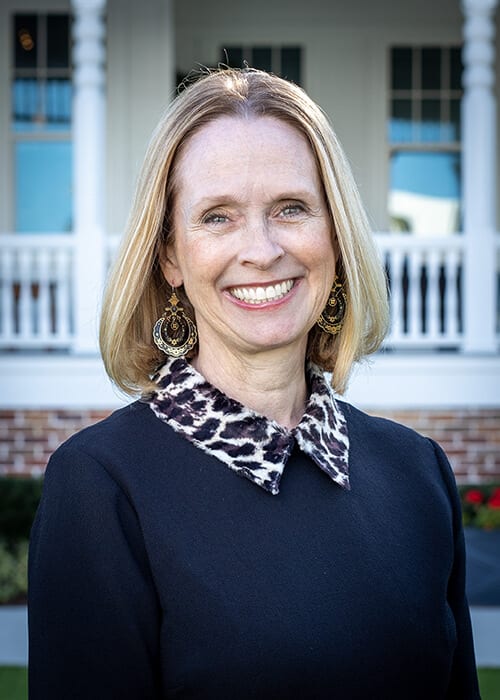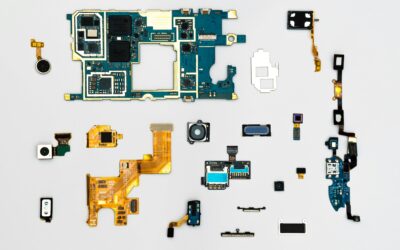Financial Peace of Mind with Susan Washburn
Financial peace of mind is attainable, but requires investment. Susan Washburn shares her expertise into how to find it!
Listen to us On
About the Episode
We focused on financial peace of mind, the unique financial needs of women, the power of community in making change, a valuable thought exercise of what you would do if you won the lottery, and getting clear on what’s most important, with Susan Washburn, CFP, JD and Senior Financial Planner with ProVise Management Group.
Listen to hear a difference-making tip on how to get engaged in your personal finances!
You can learn more about Susan at ProVise.com, Facebook, Twitter, Instagram, and LinkedIn.
Did you get anything out of this episode? Do us a solid and leave a review:
https://ratethispodcast.com/lifebloodpodcast
Learn more and engage at MoneyAlignmentAcademy.com, Twitter, LinkedIn, Instagram, YouTube and Facebook.
Buy George G a coffee (he loves coffee)
https://www.buymeacoffee.com/lifeblood
Have George G speak
https://moneyalignmentacademy.com/speaking/
Financial literacy and wellness for individuals, families, and companies
https://moneyalignmentacademy.com/
Find George G’s books here
The Aligned Money Show is the podcast for Money Alignment Academy, copyright 2024.

George Grombacher
Host

Susan Washburn
Guest
Episode Transcript
Susan, to get us started give us two truths and a lie, please. Two Truths
Susan Washburn 0:07
and a Lie. I flunked out of my first ballet class at age five. I’ve gotten a hole in one. And when I was a college student traveling in Morocco, someone offered to buy me for two camels.
george grombacher 0:28
Oh, those are those are excellent. Those are excellent. I don’t think you’ve ever gotten a hole in one, Susan.
Susan Washburn 0:34
You’re right. Yes.
george grombacher 0:40
So good. Good. Thank you. Thank you. So you flunked out of ballet. Did you? Did you keep pursuing it?
Susan Washburn 0:47
I did. I went back when I went back to college. I did. And so I as a young adult, I did. I didn’t dance professionally a dance for fun. But yeah, I so it’s kind of one of those things I love to do. All right. I haven’t done in a while. But I still love to do it. And
george grombacher 1:02
is to camels is is is that a lot? Or is that is that?
Susan Washburn 1:06
I don’t know, I’ve never really wanted to go into that I, the young friend, the college friend I was traveling with. She got offered five and I got offered to so I guess it wasn’t a really good offer.
george grombacher 1:22
Who knows? Who knows? All right. Well, I appreciate you playing along. What is top of mind for you right now?
Susan Washburn 1:31
Well, I want to talk a little bit about my story about how I got into the financial world. And I think women learn a lot by stories. And rather than giving you my resume, let me just tell you a little bit about who I am. As a young woman, I lived a pretty charmed life. By age 30, I had a beautiful home in New Orleans, I had a thriving career. And I was married and starting a family. So I was checking off all the boxes. And then life happened. And two events derailed my life. I don’t know if you remember if you were young enough to remember Hurricane Katrina. Sure. But it was about 20 years ago. And I guess we’re getting there. And that forced us to evacuate and move to Florida where I am now located. And while I was busy rebuilding my family’s life, my next life event happened. And that was my divorce. And while I couldn’t manage that devastation, following a hurricane, I realized I could have better manage the chaos of my divorce, especially the financial part of it. I was educated as an attorney, but I was working as a stay at home mom, and all of a sudden I found myself alone, scared, overwhelmed, you put it embarrassed by my lack of financial knowledge. And so to regain control of my world, I started down this path, then that’s what I do today, as I’m a financial planner. But what I’ve learned over time, as I’ve shared this story with a lot of people is how many people are in the midst of their own financial hurricane. And that’s when I had like that aha moment and realize, hey, what I do goes far beyond just offering advice about money or being a financial planner. And my true purpose or my mission these days is to really get women to engage in their financial affairs, so that they can shape their financial futures. So that’s what’s on my mind is getting women’s savvier about money and about investing.
george grombacher 3:50
I appreciate that very much. And financial hurricane, that is a great metaphor, and something that, you know, you never know what’s going to come along if it is an actual hurricane, or if it’s a sickness or a divorce or relationship, just things happen, and for now prepared. And it’s easy to not be prepared. So I don’t know if the financial industry is necessarily focused on women for very long, or if it’s even doing it now.
Susan Washburn 4:20
Well, I read enough, and I was reading something this week about how you know, 25% of women don’t even think about their financial futures or even ask questions about it. And the reality is, we live longer, and we tend to go into retirement years with less money, and there are reasons for that. A lot of it is around caregiving. I was an example of someone who was a stay at home mom and took a decade out of the workforce. And it’s hard to recoup those years on from a financial perspective. And then a lot of women now are kind Sandwich, they spend time taking care of children and then their aging parents and lots of times they’re out of the workforce, take jobs that don’t pay as much or part time jobs that don’t have the same sort of benefits and promotions and bonuses. So women do find themselves in some unique situations, not to say that men don’t. But for women, these are things that are more prevalent, I think. Yeah.
george grombacher 5:26
So how do you think about how do you think about financial literacy, because personal finance is a lot. Some people probably want to know, lots of stuff. Some people, maybe they’re super intimidated, so they don’t want to know a lot. But
Susan Washburn 5:40
I started doing something called a savvy women invest on purpose event. And it is a little bit about financial literacy. But it what it is, is it’s bringing a community of women together. And what we do is we, it’s interactive, it’s fun. And we really look at what is the purpose of your money, rather than jumping into stocks and bonds? And let’s get this whole financial plan is, what is your purpose for a minute? Let’s figure that out. And let’s jump into what are your strengths as women, because you’ve relied on those strengths all your life, to make good decisions, and you need to bring those same strengths with you with your financial planning. And we spend a lot of time looking at women strengths. Do you think of any women when you think of women, are there things you think we do exceptionally well are some of our strengths.
george grombacher 6:39
I find women to be more empathetic and thoughtful and open to having conversations about sensitive subjects than our men.
Susan Washburn 6:50
When I look at when I rent a room of women, I asked them that question, and we brainstorm and write them down. And many of the items you said are their communication. We talk a lot. Interestingly, we don’t talk about money a whole lot. We talk about our children, we talk about education trips. But I grew up as the daughter of an investment advisor. And we didn’t talk money. I mean, I think for my generation, there is a taboo around it. And I’m hoping that for your children’s generation and my children’s generations, there aren’t those taboos. But it’s communications, a really important way for women to find out information. And so I think that we’re better at that. Lots of times, I think empathy, I think that goes into what I would call put that whole nurturing category together. We tend to be purpose driven. And so when we do the savvy Women event, I kind of pose a question. So I’ll give you the same question, George. So if you won the lottery tomorrow, what are three ways you would spend your money. And inevitably, people come up with things like family, maybe it’s they’re giving back to a charitable organization, women tend to be very philanthropic, they tend to be purpose driven. They’re concerned about the environment, they’re concerned about the world we leave for the next generation. So it’s interesting just to see how women come together to figure out what’s important to them. And I think that’s a really good way to move forward. So when you can start building the foundation of what’s important for you your purpose, what you would like to spend your money on, and there’s no judgment, there’s no right or wrong answers. It’s just figuring it out. And sometimes we don’t do that beginning homework, if you will, or just that thinking, you know, having that conversation about how do we spend our money, and what’s the purpose of it, I always love to tell the I have a client. And every year she and her husband send us a Christmas card, and it’s got all of their grandchildren on it. And on the back, she writes all of their names and all of their ages and tells me a little snippet about what they’re doing. So someone might be learning to drive this year. And on the other end, someone’s going to be the next best trash collector because you know how young children you know, you they just, they’re curious and they explore so much. So I think when you can start figuring out what your purpose is, what your strengths are. That is really a good way to that’s, I think a great starting point before we get to financial literacy because when you know that you got some clarity there and I think that clarity can help you and inspire you to go the right direction on putting a plan together to receive you That’s really important. Yeah,
george grombacher 10:01
that makes so much sense. I love the exercise. And the question about if you won the lottery, what would you do? Because it strikes me that that really goes to what hurts the most or what is, you know, sort of what’s been, what, what’s Top of Mind with with with money, and now I’ve given you a magic wand to get rid of that thing. So what, what are some of the things you start with?
Susan Washburn 10:25
Right? It’s just I think it’s your value system, and what you know, resonates with you as a person. And I think men can do the same thing. It’s just trying to connect with women in places that are meaningful to them and important to them. So that’s kind of where we go with that.
george grombacher 10:43
Yeah, I love it. And why not talk about purpose and strengths? First, it’s such a men are historically, typically speaking, focused on things and women are focused on relationships. I don’t think that that’s a controversial thing. But it’s funny that I went right to things and you’re talking about, the more the more important things. So I’m being part of the problem, Susan.
Susan Washburn 11:09
I Dad. So you bring up relationships. So one of the things that we talk about in my savvy Women event, is we are relationship driven. And I’ve kind of think there are three components to what is part of a relationship with a financial professional. And one of them is knowledge and expertise, and reputation. Another would be communication skills. And another one would be interpersonal skills. So George, which do you think of those three kind of categories appeals most to men?
george grombacher 11:49
knowledge, expertise and reputation. Right.
Susan Washburn 11:52
But women want all of it. And I think a lot of men, I bet you’re one of them. George bought all of that too. But the industry was built by men for men and men often look, am I beating the s&p this year? And women look at returns, but I think we look at it a little more intentionally we look at it is are we getting to our end point. I heard a speaker say the other day that women don’t care about returns. And I don’t think he really meant that I think I hope he didn’t mean that. I think what he meant is what I’m trying to say is that it’s just a way of looking at it differently. And it goes back to maybe the goal if my goal is retirement and I have one bad year last year was a cruddy market, it just was Friday in the stock market didn’t matter where you were, if I judged it just by that Friday year, then I be like, ah, but if I know I haven’t an end game, I know I have a goal. I’m putting away money for my kids college. This is one year and I know that the markets go up and down, that we can overcome that. So I think it’s understanding that all of those things are important. Interpersonal skills. It’s knowing I kind of came at a blank right there. But it’s knowing that people want to be heard and understood. And I think that’s a really important part of when I put a financial plan together, I started last year, I took a class a year long course on becoming a certified financial transitioning test. And that is to help people as they go through transitions in life like death, changing a career and an identity, divorce, and getting those tools. Because what I’ve learned over time doing what I do is that there’s a technical side of money, you know, the cash flow, the investments, the estate planning, but there’s also a personal side of money that drives a lot of our decisions, our relationships, our emotions, and all of that. And so I’ve started to really incorporate those sorts of tools. And I think that’s because I’ve worked with so many women that I know that they need that. I started using a communication preference tool recently. And I’ve gotten a lot of really positive response from that because we don’t often ask people how they best communicate. And all this is is a simple one pager. And it’s my certified financial transition this group they have put this out. And what they do is they look at this and I say look, you know, in times of transition in times of stress, you may not make your best financial decisions. So, let’s look at this list real quickly and give me one or two ways on here. Describe how you communicate. And some of them are like, soften your tone. Or it may be give me time to process give me visual aids. But those communication tools, and I really feel when I work with new clients or a client going through a life event, that it becomes really important to see how someone does communicate, because how I communicate, doesn’t work for everyone. So trying to see how I can best help people as they go through making some of these decisions. And sometimes the decisions we make are irrevocable, we can’t go back and change them, or to give people timeout, let’s take a pause. This doesn’t have to be done today. It’s something to think about. So I think it’s really important to take all of those things in our relationship with our financial professionals and make that come to fruition. So that’s something I’m very passionate about is making it a very holistic, intentional, those words get overused. But to me intentional is so important. putting a plan together that represents your values, your purpose, and what works for you. I think soapbox didn’t talk not at all.
george grombacher 16:23
Not at all. I don’t know that I know how I like to receive information. Like if I sat and thought about it. So I imagined that a lot of people it’s very, very beneficial to help them go through that exercise of learning about my communication styles, or rather, preferences. So now I know and I can be more of an advocate for myself, and what I really want out of my interaction with a financial professional, say, Hey, here’s how I like to receive information. And I want to take an active part in this and sort of CO create, versus just having it dictated or given to me.
Susan Washburn 17:04
I like that CO create. I think that’s really the goal there is I just I would while you were saying that I was looking, you know, some of the things that are on that list are, remember my need to analyze, invest time in building the relationship. Remember, my need for control, be an active listener. And I think what happens is when I put this list of about 1015 in front of someone and say, look, what, find one or two that pop in there, every once in a while I’ll get someone who says they all apply said no, what strongly apply. But I think making it a much more team event. Part of what we do at pro vices we work as teams. And I think one of the nice things about that as you can to professionals who are experienced who are credentialed, who have great reputations, able to listen to a situation and know your situation, and get to know who you are, and what your dreams are, and what your expectations are, and see if we’re a good team. And that’s so important. And that’s one of the things I always leave women with is the key to becoming savvier about money is one of them is trusting your intuition, you know, sometimes that a relationship will work, or it won’t work. And I always remember the times I didn’t listen to my intuition. I never go back and say, Oh, I listened to it and it worked out. But I think we’re hardwired to know something’s just dark going to work out.
george grombacher 18:43
Yeah. I think that there’s so much value in that. And if we’re not intentional about knowing than actually listening and paying attention, then it’s just going to sort of pass us by. So it makes a lot of sense. Susan, we are ready for your different speaking tip. What do you have for us?
Susan Washburn 19:04
I encourage everyone, especially women to get engaged in their financial affairs. Start making make it your New Year’s resolution now to start putting together a financial plan. And gentlemen who are listening the same for you?
george grombacher 19:24
Well, I think that is great stuff that definitely gets Come on. Susan, thank you so much for coming on. Where can people learn more about you? How can I engage with you?
Susan Washburn 19:33
Well, you can find me probably the easiest way is to give me a phone call or you can reach out to me at Pro Vise Management Group. I’m at Washburn it for a vice.com or 727-441-9022. And reach out and I’m also on LinkedIn. So I’m trying to get better with social media. Sometimes I’m a technology dinosaur, but I’m trying
george grombacher 19:58
I pretty shoot that. Excellent. Well go to its provides.com Yes,
Susan Washburn 20:06
it’ll work pro. V is in Valentine i s e.com and
george grombacher 20:13
shoot Susan an email or find her on LinkedIn, give her a call and start taking that intention or operating more with with with intention with your finances. Thanks good, Susan.
Susan Washburn 20:26
Thank you.
george grombacher 20:27
And finally a friendly reminder that as Susan and I have been talking about, it’s never going to be anybody more interested in your financial success than you are. So act accordingly.
More Episodes
Beyond the Bank Balance: Cultivating a Soulful Relationship with Money
You don’t need to be a Wall Street shark or a personal finance guru to develop a healthy relationship with money. In fact, most of us start with little more than a jumble of beliefs and habits passed down from our families. But if you’ve ever found yourself stressed...
How Using AI Can Help You Gain Clarity Into Your Financial Future
In today's fast-paced, data-driven world, achieving financial clarity can feel like an overwhelming task. With numerous financial decisions to make—from budgeting and investing to retirement planning and debt management—it's easy to feel lost in the complexity of it...
How AI Can Help Improve Your Personal Finances
1. Smarter Budgeting and Expense Tracking AI-powered tools like Mint, You Need a Budget (YNAB), and PocketGuard can automatically categorize your expenses, track your spending in real time, and even alert you when you’re about to exceed your budget. These tools...
Trust and Confidentiality When Using AI as Your Financial Coach: Safeguarding Your Sensitive Data
In the digital age, artificial intelligence (AI) has revolutionized many aspects of our lives, including personal finance. AI-powered financial tools have become a go-to resource for budgeting, investing, debt management, and even retirement planning. But as more...
How AI Can Be Your Personal Financial Coach: Unlocking the Future of Financial Success
In today’s fast-paced world, managing your finances can feel overwhelming. With so many options for saving, investing, and budgeting, it can be hard to know where to start or how to stay on track. Fortunately, advances in technology—specifically Artificial...
How Technology and AI Are Benefiting Investors and Consumers in Securing Their Personal Financial Futures
In recent years, the rise of technology and Artificial Intelligence (AI) has profoundly transformed the financial landscape. These advancements have empowered investors and consumers to make more informed, efficient, and personalized decisions about their financial...
10 Things New Parents Should Be Thinking About Regarding Their Personal Finances
Becoming a parent is one of the most joyful and transformative experiences in life. However, it also brings new financial responsibilities and challenges. If you’re a new parent or expecting, it’s crucial to plan ahead to ensure your family’s financial security. Here...
10 Things Newlyweds Should Be Thinking About Regarding Their Personal Finances
Marriage marks a new chapter filled with excitement and partnership. While love may be the foundation, financial harmony is key to building a stable and happy life together. To set yourselves up for success, here are 10 essential financial topics that every newlywed...
Financial Tips for New Parents: Building Stability and Security for Your Growing Family
Becoming a parent is one of life’s most rewarding experiences, but it also brings significant financial challenges. From diapers to daycare, the costs add up quickly. Whether you’re a first-time parent or adding to your family, managing finances wisely is crucial for...
Join the show.
Interested in being on the show? Tell me a little bit more about you and what you’d like to talk about!














